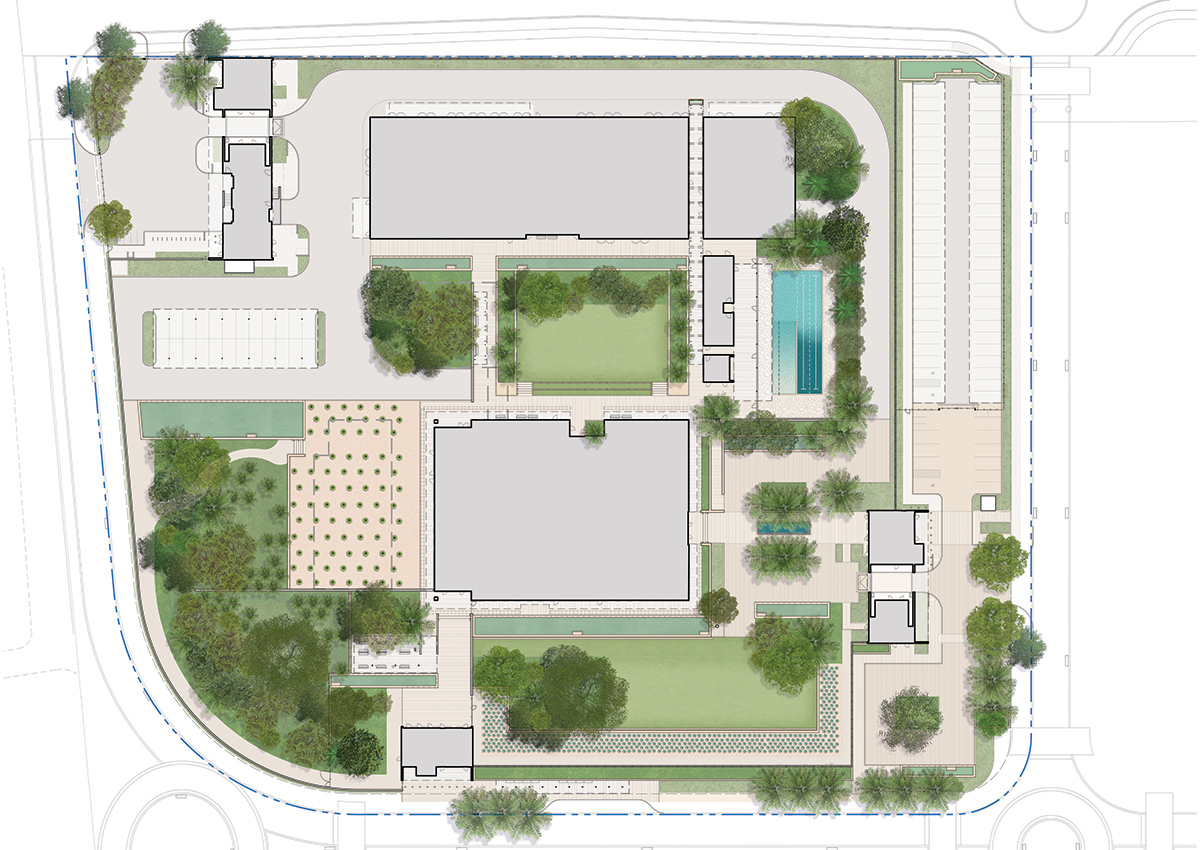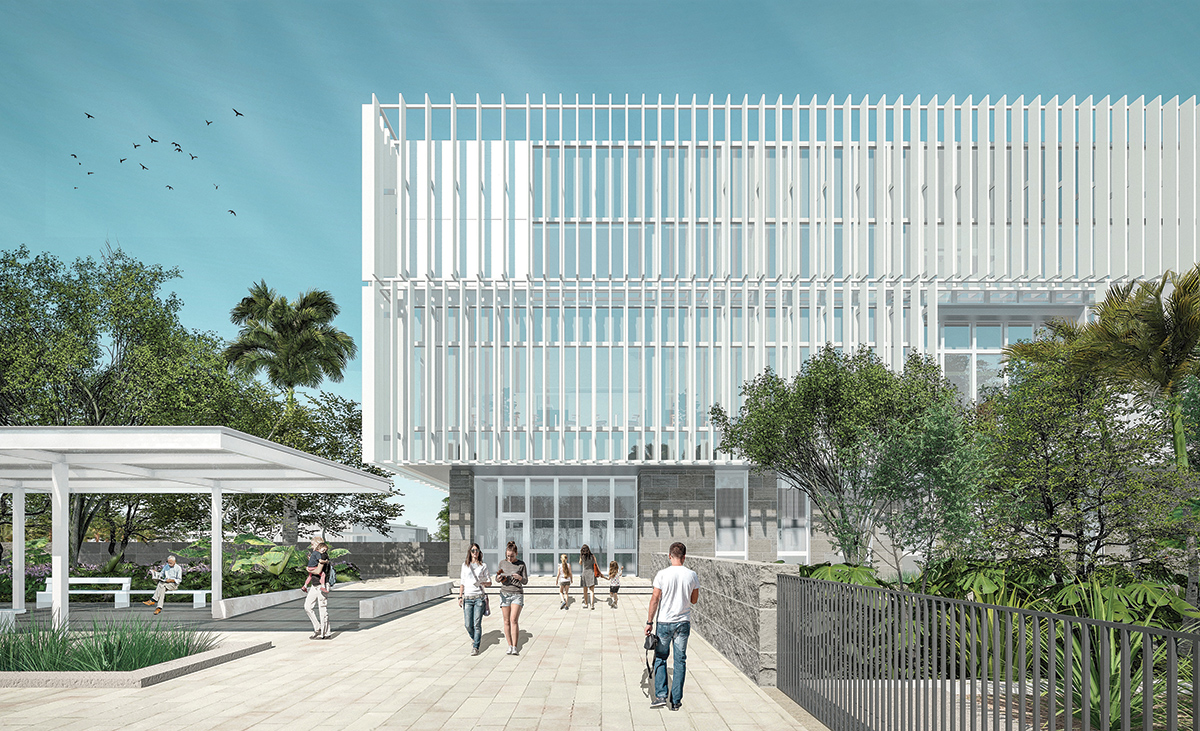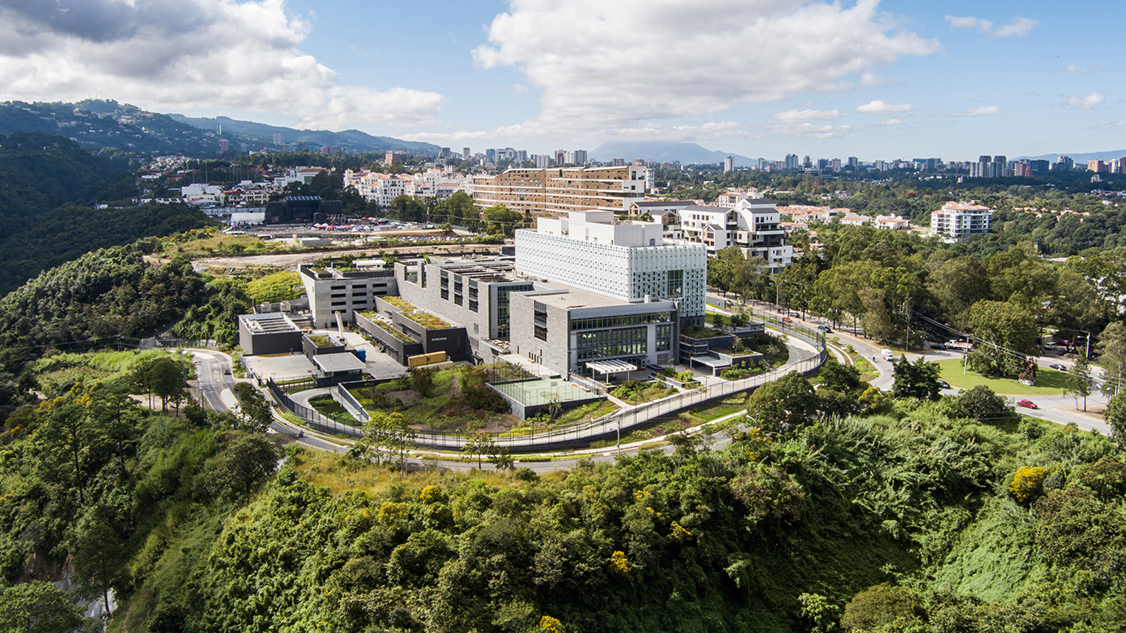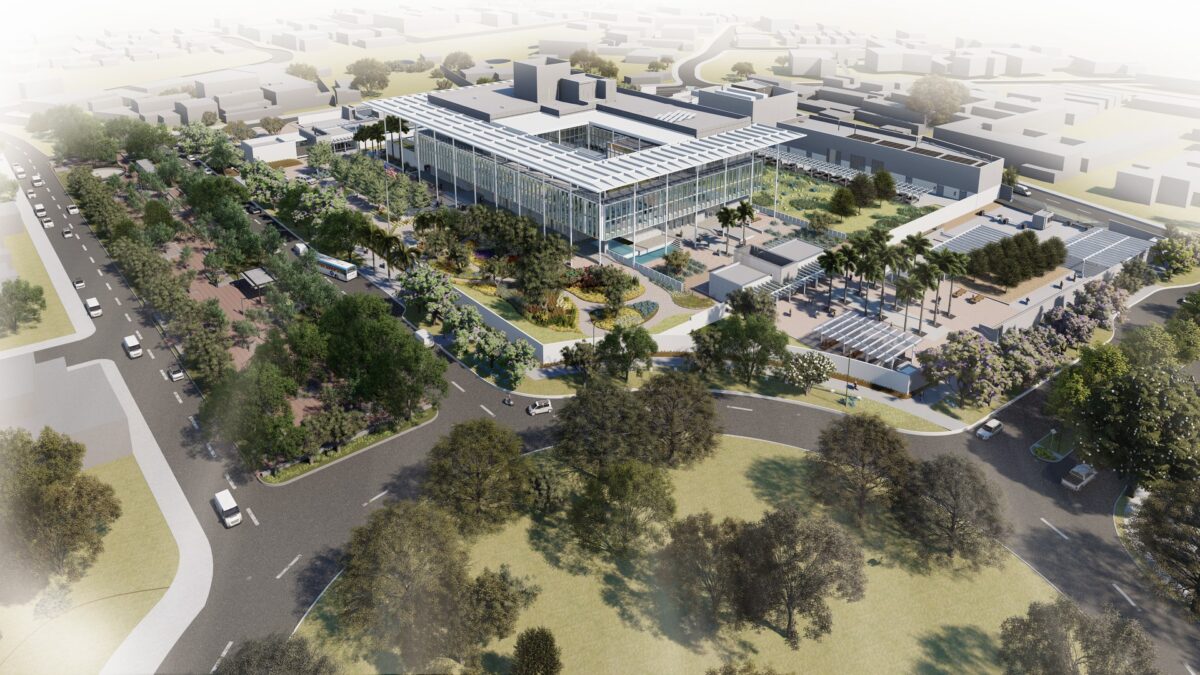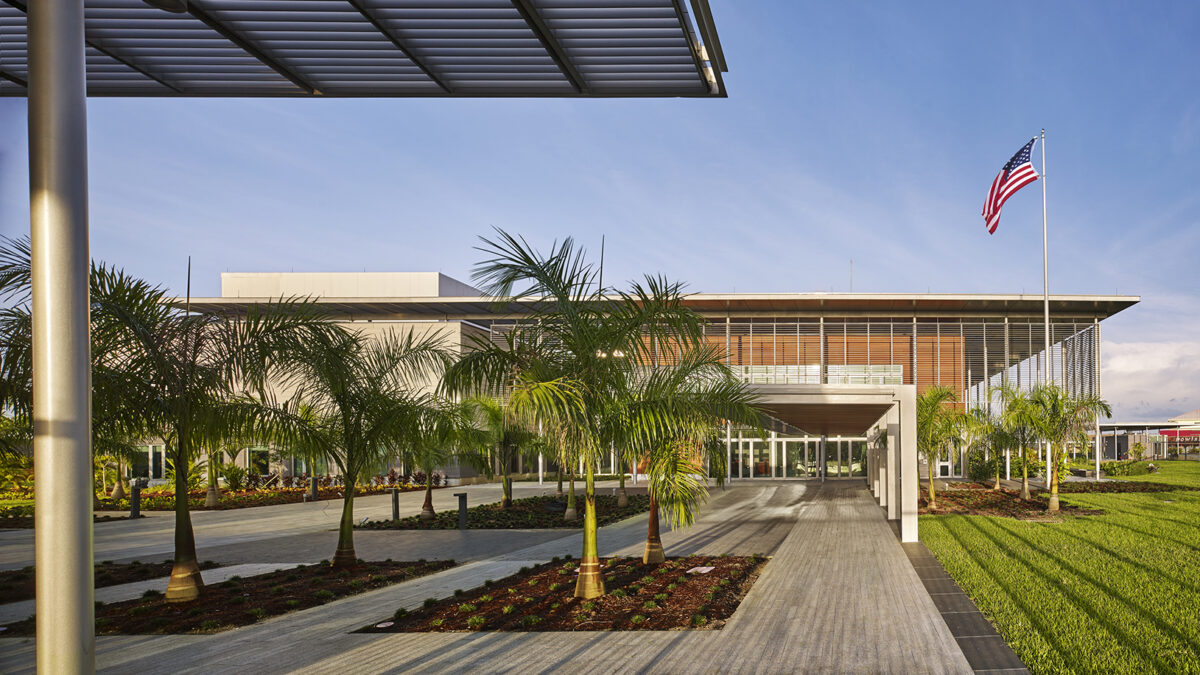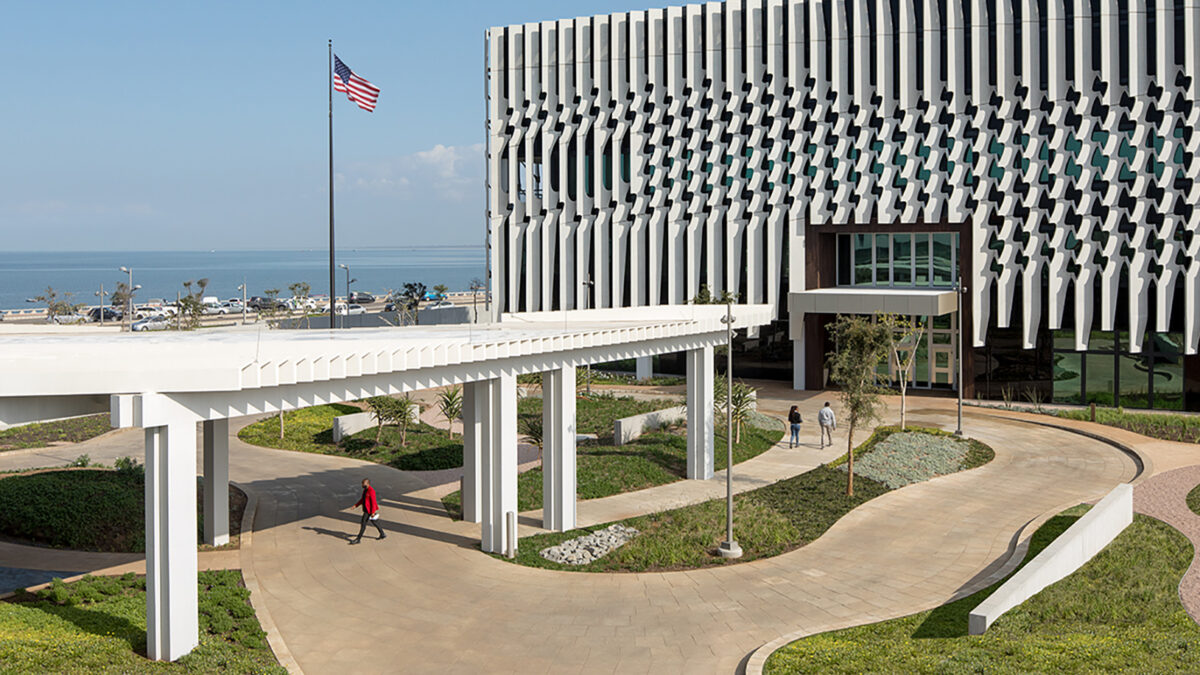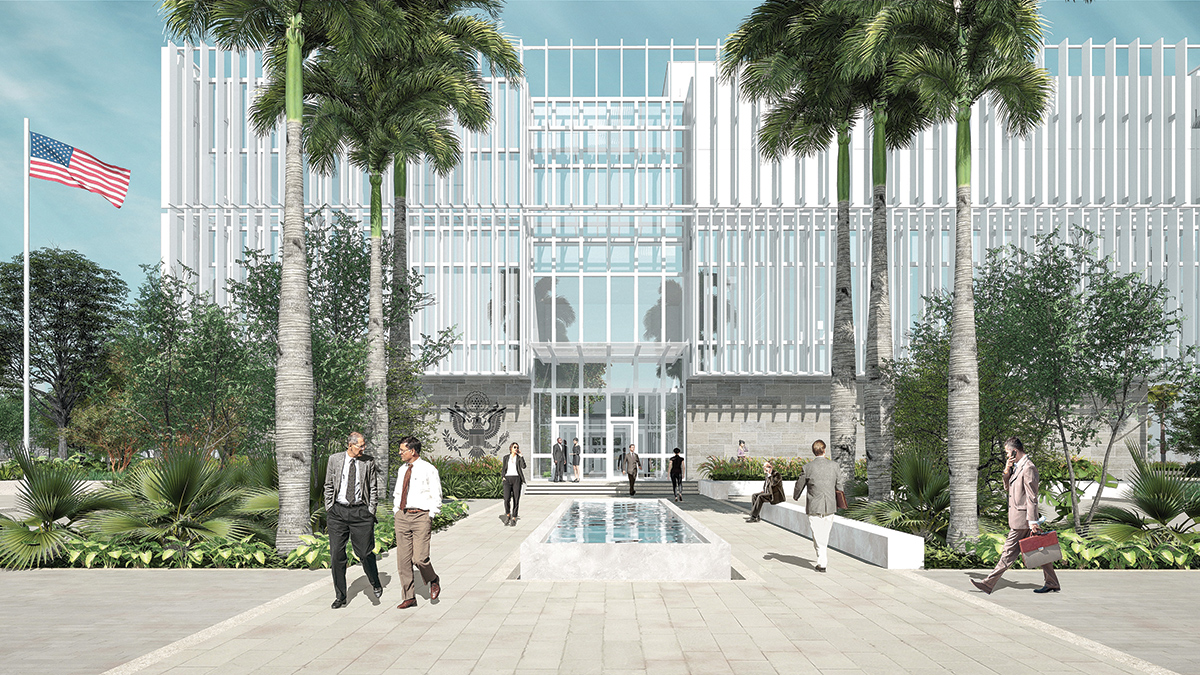
Mérida is the political and economic capital of the state of Yucatán, and Mexico’s fourteenth largest city. The Yucatán peninsula is a region rich in history, including the ancient Mayan culture, colonial towns and haciendas, and a striking natural beauty consisting of dry tropical forests and thousands of iconic freshwater pools known as cenotes.
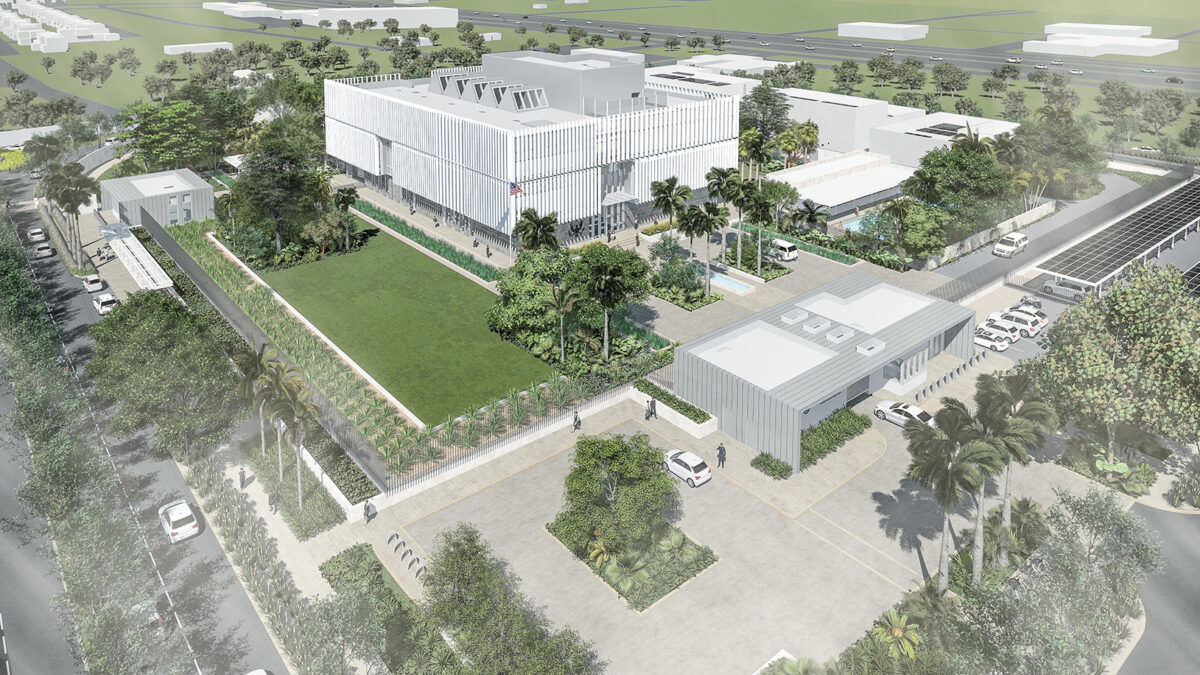
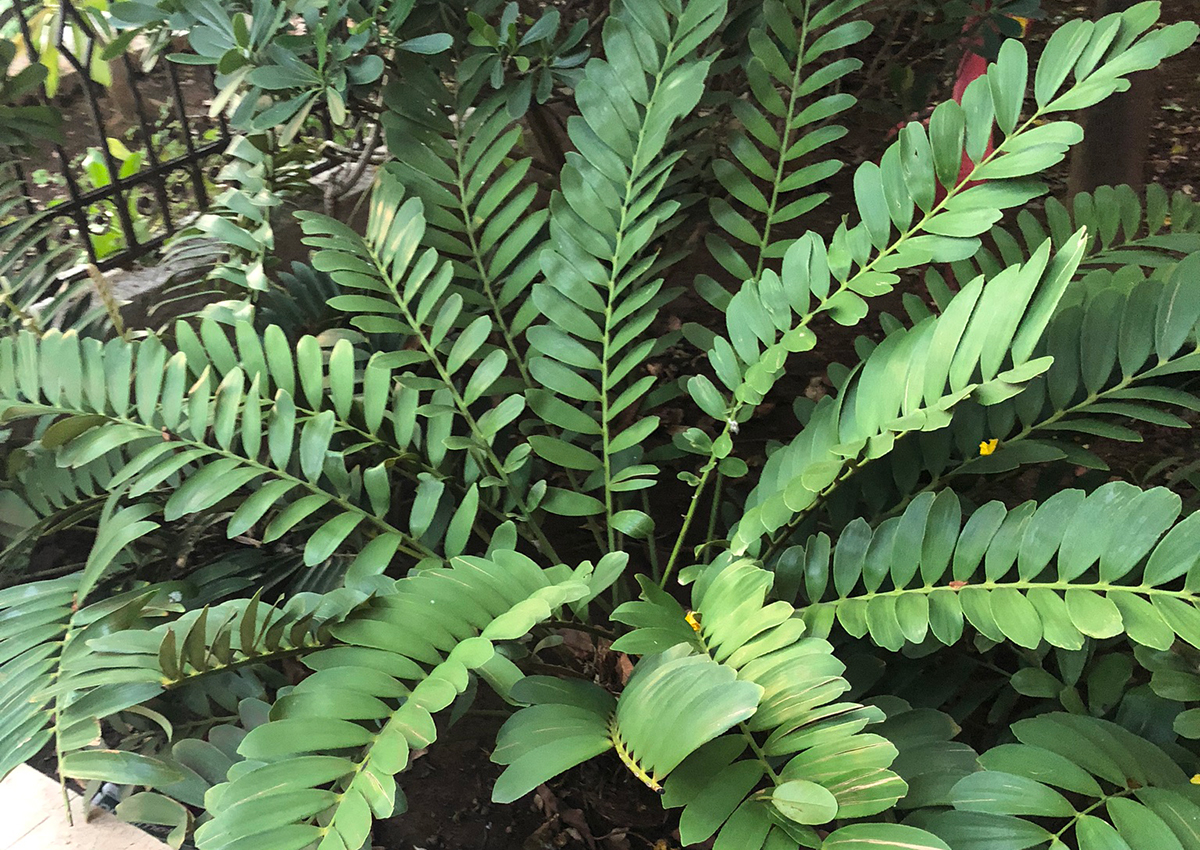
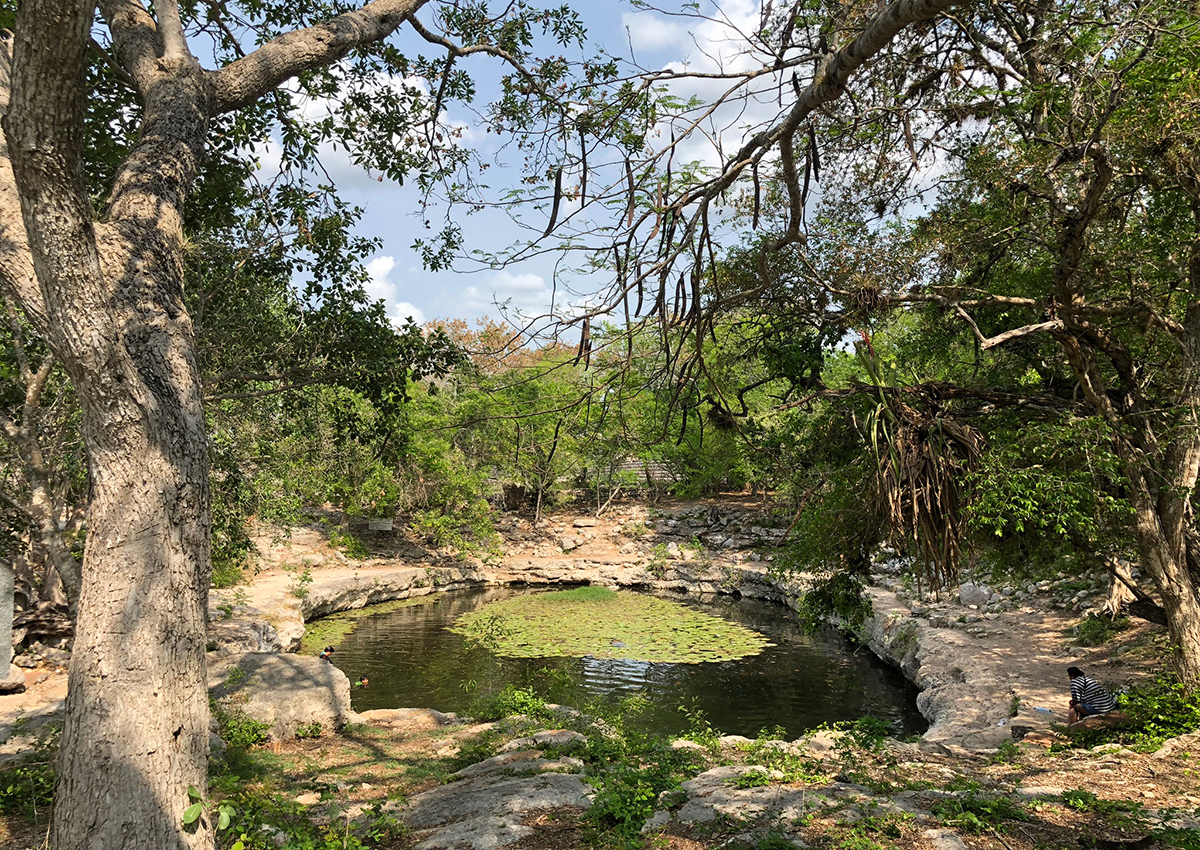
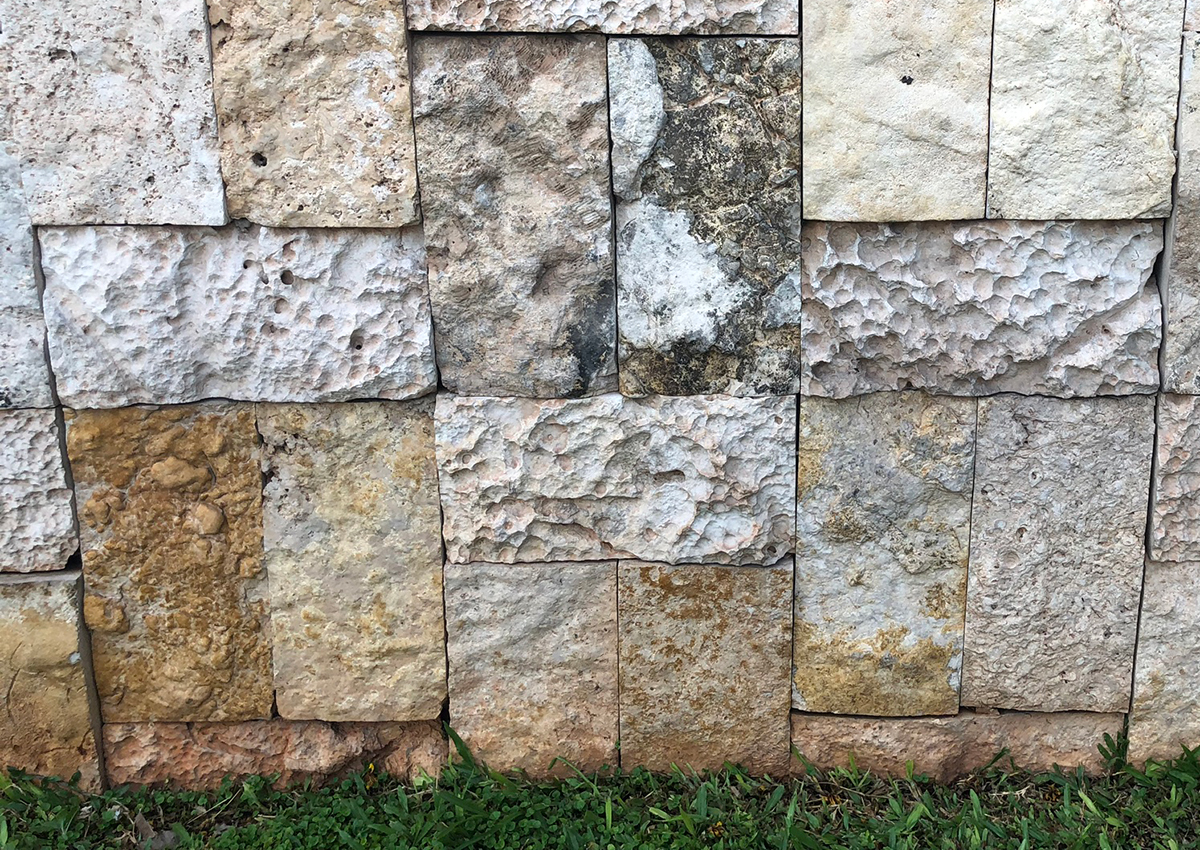
The design of the new consulate campus seeks to strengthen the relationship between the United States and Mexico. Through an architecture that draws upon the region’s Mayan, colonial, and contemporary cultures, as well as its geological and ecological features, the design creates a welcoming lightness and optimistic feel with a noble expression that is restrained, simple, and elegant.
The new campus is on a seven-acre site. It includes a new two-story 6,000 square meter consulate office building, entry pavilions, support and utility buildings, extensive gardens, and staff recreational areas. The consulate is a regional destination for Mexicans seeking Non-Immigrant Visas. It is an essential facility for United States citizens seeking American Citizen Services in an area popular with retirees and tourists.
The solidity of ancient Mayan structures is referenced through a series of stone site walls extending in the cardinal directions from the stone base of the consular office building to important activity nodes and the campus entrance pavilions. These walls help organize a landscape design that draws from the local colonial Hacienda typology, developing a collection of oases, formal gardens, and water features.
The project also extensively uses an ancient Mayan material, chukum plaster. Resin from the locally endemic chukum tree is mixed with traditional limestone plaster to form a finish naturally resistant to water infiltration and cracking. Many of the campus perimeter and site walls, as well as the recreational and utility buildings, are finished with this warm, natural material.
